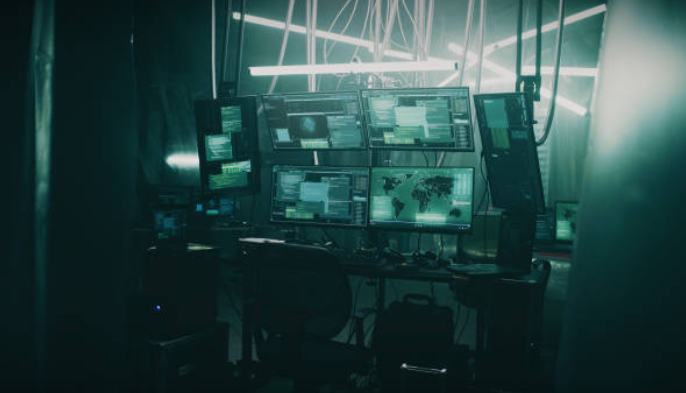By Pearly Matibe
The United States Government has taken further action in Executive Order 13863, against Russian-affiliated individuals and enterprises accusing them of criminal activity, asserting that some of their activities are undermining African countries, including in the Democratic Republic of the Congo (DRC), Mozambique, South Africa, and Zimbabwe.
This was contained in a U.S. Treasury Department statement published on 26 January, 2023 which said, in part, “The Wagner Group has also meddled and destabilized countries in Africa, committing widespread human rights abuses and extorting natural resources from their people.” These assertions are not new.
And, while the U.S. has previously monitored China and Russia’s information campaigns in Africa, and published its findings in the Mapping Disinformation in Africa report by the Africa Center for Strategic Studies, and counter-disinformation efforts through its foreign affairs ministry, the U.S. Department of State, is continuing its tracking program. It has described the Russian-affiliated activities as an, “Africa-Wide Disinformation Campaign.”
Specific Alleged Information Warfare (IW) Activity
On 27 December 2022, a U.S. Department of State official, with direct knowledge of Chinese and Russian disinformation tactics in Africa, cited multiple examples of offensive information warfare (IW) operations on the continent. “AFRIC serves as a front company for Prigozhin’s influence operations in Africa, including by sponsoring phony election monitoring missions in Zimbabwe, Madagascar, the Democratic Republic of the Congo, South Africa, and Mozambique, and disseminating pro-Kremlin disinformation,” the State Department spokesperson told White House Correspondent, Pearl Matibe on the heels of the U.S-Africa Leaders’ Summit in Washington, D.C., in America.
Previously, in April 2021, the U.S. Department of Treasury targeted Yevgeniy Prigozhin (Prigozhin), as the Russian financier of the Internet Research Agency (IRA), the Russian troll farm, and pointed out that Russian national Alexander Malkevich (Malkevich) and his company, the Foundation for National Values Protection (FZNC), were facilitating Prigozhin’s global influence operations.
Where and how are Information Warfare (IW) operations deployed in Africa? “AFRIC works in coordination with other elements of the Prigozhin network, including FZNC and the International Anticrisis Center, a fraudulent think tank controlled by Prigozhin’s operatives. FZNC claims to be one of Russia’s leading think tanks focused on Africa. It is a key organization involved in Prigozhin’s global influence operations as the FZNC website spreads messages on behalf of Moscow,” a State Department spokesperson said.
Beyond propaganda, “information warfare”—in Africa—has increased significantly, by China and Russia, U.S. Government sources have said. Providing specific examples of Africa proxies, a State Department spokesperson detailed some of the examples saying, “Pan-Africanist Kémi Séba is a prominent purveyor of Russia’s disinformation and propaganda. Séba claims to support the principle of African problems–African solutions, as does the Russian Federation Ministry of Foreign Affairs when promoting Russia’s image writ large in Africa. Born in Switzerland to a Cameroonian father and a Swiss mother, Nathalie Yamb lived in Côte d’Ivoire from 2007 to 2019, and is a highly prolific purveyor of disinformation and a prominent critic of France and its allies on the continent.
She has over 213,000 followers on Twitter, 84,000 on Facebook, and 200,000 subscribers on YouTube. Yamb calls herself “the Lady of Sochi” after her participation in the October 2019 Sochi summit in Russia where she accused France of plundering Africa’s resources, fomenting rebellions, and training terrorists–which resulted in her expulsion from Côte d’Ivoire in December 2019.” The Russian Federation has a planned Russia–Africa Summit 2023 slated to take place in July 2023 in St. Petersburg, Russia’s second largest city after Moscow.
On China, a State Department spokesperson confirmed that the State Department’s Global Engagement Center (GEC) sent an unclassified report to the U.S. Congress in September 2022, reporting that the, “PRC [People’s Republic of China] state media companies execute content-sharing agreements with foreign news outlets to place PRC propaganda under mastheads of trusted media and activate networks of pro-PRC commentators to extend the reach of Beijing’s preferred narratives. Financial inducements such as paid advertorials enable Beijing to advance its narratives through content that appears legitimate, obscures its financial support, and circumvents local editorial control.”
Furthermore, the report informed U.S. Congress, “Some content-sharing agreements include exclusivity clauses that prevent foreign news outlets from publishing Western-sourced news reports inconsistent with the PRC’s preferred narratives. These tactics provide Beijing with leverage to punish and deter critical coverage, particularly with respect to resource-constrained foreign independent media outlets.”
Government officials and political party media actors, “from the People’s Republic of China (PRC) and the Chinese Communist Party (CCP), routinely amplify Kremlin propaganda, conspiracy theories, and disinformation…Using social media platforms banned within the PRC. PRC and CCP media and PRC “wolf warrior” diplomats convey biased Kremlin talking points to audiences in multiple languages and regions across the world.” the State Department spokesperson said.
Before publishing this article, in responding to questions about whether these issues were raised with African leaders at the second U.S.-Africa Leader’s Summit, they responded affirmatively.
U.S. Government officials say their concerns over negative, offensive IW operations were raised with African leaders at the December Summit. “As Secretary Blinken stated on 15 December 2022, the “Wagner Group came up in several conversations over the course of this week on the margins of the Summit, including, indeed, in my meeting with President Akufo-Addo of Ghana. We’ve heard repeated concerns that Wagner and groups that are linked to it manufacture or exploit insecurity, they threaten stability, they undermine good governance, they rob countries of mineral wealth, they violate human rights. And we’ve heard that and seen that again and again. And the bottom line is this: What I heard in conversations this week, as I’ve heard in the past, is our partners in Africa tell us that they do not want their resources exploited. They don’t want the human rights of their people abused. They don’t want their governance undermined, and ultimately, as a result, they really don’t want Wagner,” the State Department spokesperson recounted.
On efforts to contact social media companies like Twitter, “Social media platforms determine the application of their terms of use or service at their discretion. The Department of State has noted that several social media companies are taking measures as a result of Russia’s full-scale invasion of Ukraine to further label Russia’s state-sponsored media organizations, to suspend those violating their terms of service, and to reduce the opportunity of purveyors of disinformation to manipulate the platform algorithms,” responded the State Department Spokesperson.
According to the United Nations, North Atlantic Treaty Organization (NATO), and the African Union (AU), IW and defence activities include social cyber-attacks deployed to create in people’s minds a distinct image of the world, consistent with goals of the information warfare done by a given country.
Disruption allows one country to reach citizens in another country by using a field of operation of the troll factories, bots, and fake news. Disinformation—deliberately spreading false information—is a tactic of IW operations in cyberwars, as is fake news.
“The State Department and U.S. Embassies in Africa are in regular contact with African leaders on the types and consequences of disinformation. Both President Biden and Secretary of State Blinken have directly engaged with African leaders on this issue. The Global Engagement Center leads the U.S. Government’s fight about the threat of disinformation through programs that connect international experts with local voices to detect, analyze and counter malign influence operations in Africa. We also emphasize technology engagement, building awareness of and resilience to disinformation, as well as international efforts to expose and counter the disinformers,” explained a State Department spokesperson whose role incorporates communicating the foreign policy positions of the U.S., including where the U.S. seeks to deepen and strengthen relations with its partners like African countries as they did with African leaders at the U.S.-Africa Leaders’ Summit.
In September 2022, at a Countering Disinformation Effects in Sub-Saharan Africa event hosted by the U.S. Advisory Commission on Public Diplomacy in Washington, assistant professor and director of Undergraduate Studies, in the Department of African Studies at Howard University, Dr. Anita Plummer said, “China’s public diplomacy and soft power efforts are creating state-produced narratives aimed at influencing Kenyan publics and shaping discourses.”
Additionally, strategic communications manager and research associate at the National Defense University, Dr. Mark Duerksen, also explained that “Russia is activating a weariness with the West in many of the countries in which it operates,” adding that as a “promoter and champion of African solutions for African problems” Russia aims to “back African countries’ independence to allow people to make their own decisions for themselves.” Duerkson reiterated that according to Gallup, “African approval of Russian leadership increased from 34% to 42% between 2017 and 2021.”
The question remains: Can Africa’s nations defend themselves against negative, offensive information warfare in the 21st century, or state-sponsored propaganda from any country, for its countries’ national security, and healthy global partnerships?
Pearl Matibe is a Washington, DC-based foreign correspondent, and media commentator with expertise on U.S. foreign policy and international security. You may follow her on Twitter: @PearlMatibe



